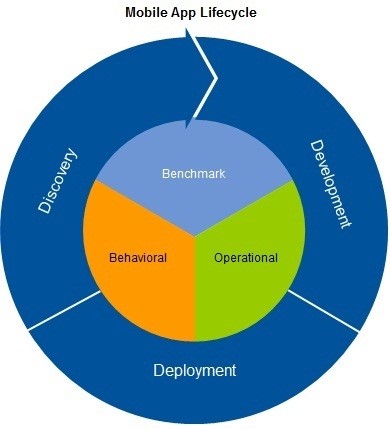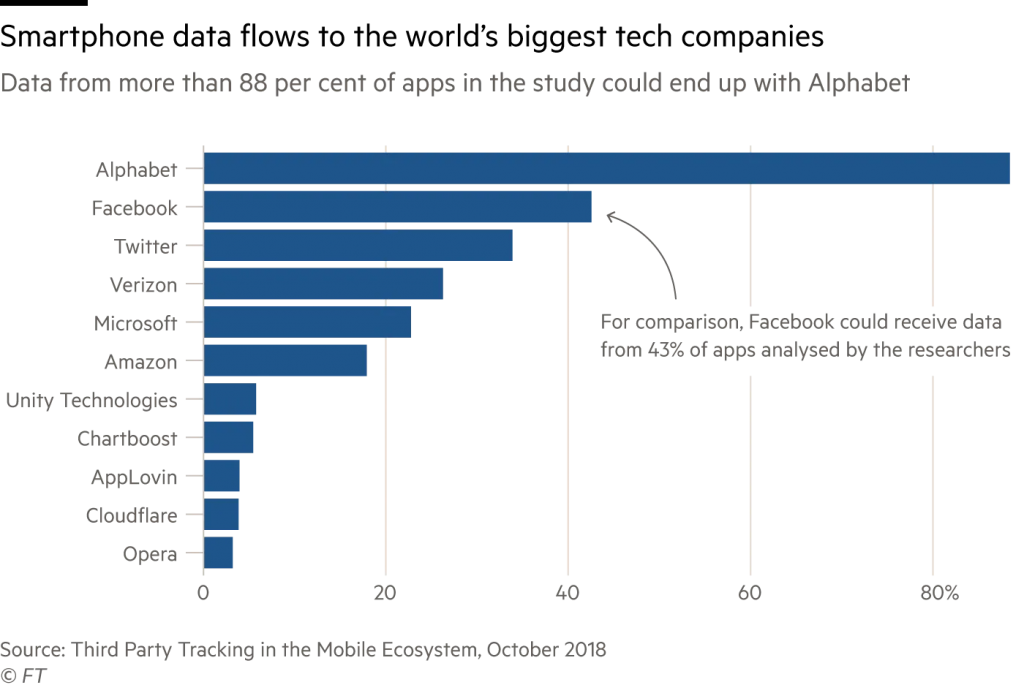6 Reasons Why You Should Track the Performance of Your App After it Went Live!
- Mobile
- December 13, 2019
You thought thinking up a killer idea was challenging. And then, developing a functional app was tough. But now, it’s up and running. So that means you can sit back and relax, right?
Think again!
The app market is competitive. Statista.com has the numbers. As of the third quarter of 2019, there are nearly 2,470,000 apps on Google Play and 1,798,000 apps on the Apple App Store. So you’re going to have to keep fighting to get noticed- that too, in a good way.
You want billions of people across the world to use- and continue using- your app. Well, then you’ve got to keep pushing at making your app excel, boosting visibility, and retaining customer attention.
You know that apps are beneficial to online businesses. Setting ambitious goals for delivering an unforgettable experience for your customers is part of your job description.
So this means that you must quickly and efficiently investigate any issues to keep the responsiveness and performance of your app topnotch.
And that can only be achieved through monitoring. Utilizing the appropriate tools to gain accurate and up to date insights is an ideal way to get ahead of the competition.
How Can You Track Your App’s Performance?
This is where app analytics comes into the picture. It captures data from mobile apps by identifying unique users, following their journeys, recording their behaviors, and providing reports on an app’s performance.
Mobile analytics can be used to improve conversions by using data to create a better mobile experience.
There are three uses for mobile analytics:
- Performance analytics- helps monitor an app’s efficiency
- Marketing analytics- tracks marketing campaigns
- In-app analytics- helps understand the mobile app user
Why Should I Track the Performance of My App?
Just last year, only 0.01% of all consumer mobile apps became financially successful, stated startupgrind.com. Scary, right?
Well, that only enforces the fact that you cannot afford to let your app fail after all the hard work you put into launching it.
There are several ways to keep tabs on your app. But before we get into that, here are the essential reasons why every developer needs to invest in keeping track of their app.
1. Remain relevant to your customers
Smartphones are a necessity, and brands are ignoring their importance. Through mobile apps, businesses are engaging with customers and empowering brands with extensive amounts of data.
Tracking an app’s performance helps provide in-depth analytics on its adoption and usage as well as the user’s demographics. Using mobile analytics ensures that a brand remains relevant to its business goals and customers.
If an individual doesn’t derive real value from an app, it will either be deleted or abandoned.
Therefore, having the correct real-time data about customers is crucial for success. Do you know, 43% abandon the app a week after install, and 71% churn within 90 days?

By monitoring changes in trends and preferences, a brand can maximize its efforts and continue to provide an app that is unique and valuable.
2. There is always room for improvement
Mobile analytics helps you assess consumer engagement and app performance. It is an integral part of the software development life cycle (SDLC).

By gathering feedback and metrics, any brand will have the knowledge required to improve their current app. Developers have the power to make data-driven judgments about UX/UI, design, and content.
This should be a continuous process so that the app can improve user engagement, increase user retention, and enhance the overall UX.
3. Satisfy customer demands
It’s always been- and will always be- about pleasing the customers. People are busier than ever. They want apps that can provide solutions to their problems while on the go- not get entangled with an app that keeps crashing.
Apteligent stated that one in four users abandon an app after a single poor experience. Striving to achieve a 100% retention rate is unrealistic. But aiming to increase engagement and downloads is plausible. This will, in turn, gain more customers and attain growth.
Therefore maintaining mobile app intelligence can help you highlight issues and rectify them as soon as possible.
Apps need to optimize user experience and meet their expectations. Knowing what they are will keep you ahead of the curve. Gartner revealed that by 2018, 75% of organizations had redirected their investments to customer experience innovations.
4. Get better than the competition
There is a cutthroat in the digital world. Others in the same niche are ready to take as many customers as they can. Analytical tools can help you measure the performance of your business as well as others.
So, depending upon the category that your app is designed for, consider monitoring the metrics of your competitors.
From building brand awareness to communicating with your customers to getting viewers to take action, you now have the adequate tools to get ahead of the competition. You’ll know how the audience is engaging with your app and how they are interacting with it.
Collecting the results daily, weekly, monthly, and annually will help you analyze trends and implement the right campaign for your business.
In addition to app performance and behavioral metrics, you must also analyze industry data. Knowing how your app performs relative to others with respect to key app performance measures is vital for success.
Utilizing reliable benchmarks for crash rate, app launch time, network latency, etc. can help analyze how your app compares with industry peers. The statistical analysis and insights can promote proper resource allocation, thereby improving your business.
5. Allows brands to remain profitable
Whether it’s through reviews, feedback, or analyzing data, determine what is making customers unsatisfied. By tracking the right metrics, you’ll be able to identify issues quickly and stay profitable.
Engaging users and attracting new ones will help generate revenues. That’s why focusing on what’s driving ROI is essential.
Buildfire claimed that 71% of app users churn within the first 90 days of downloading an app.
By measuring metrics such as retention and churn, you can find out what’s causing these users to uninstall. Give them a reason to keep coming back and using your app.
6. Help personalize the mobile app
Having an app is not enough. Tracking the metrics is paramount to success. When you can follow a person’s preferences, you have profound insight into their choices. Providing a personalized experience boosts engagement. Moreover, it makes targeting specific customers easier.
Personalization is not a new concept. In fact, it is one of the most successful and efficient tactics to reel in customers in the digital space.
According to thinkwithgoogle.com, 89% of U.S. marketers reported that personalization on their websites or apps resulted in an increase in revenue.

But lately, app users are craving individualization. This technique involves the use of personalization in order to automatically optimize the individual customer experience.
With the aid of rapid data aggregation and analysis, cross-channel deployment, and machine learning, a customer’s behavior can be predicted. And strategies can be adjusted to cater to their needs.
Moreover, apps can be tailored to a person’s preferences, location, and in-app behavior. Individualized push and in-app messages have shown much better results than a general broadcast.
Bonus tip: Congregate efforts on all platforms
Companies have utilized app analytics to improve websites and social media campaigns. It all lies in the ability to recognize the association between function, performance, in-app usage, network configurations, etc. Moreover, it allows marketing campaigns to be consistent.
Mobile app analytics can help apps become more discoverable. You have all the information at hand to improve your app and keep it working efficiently.
App analytics can save time by simplifying your work and expand productivity by steadily accumulating all the necessary data. Information is then used to create detailed profiles about the customers. It is ultimately transferred to various aspects of the same businesses.
However, data collected through apps are used by other businesses as well. Ig.ft.com disclosed that 88% of apps transfer data to third parties owned by Alphabet, while 43% transfer data to enterprises owned by Facebook.

Final thoughts
In short, mobile apps are one of the greatest innovative products available on the market. But without the proper metrics to keep track of its performance, these innovative products could eventually fail.
An app’s poor performance will be reflected in its usage metrics. It can impact retention rate, engagement, daily/monthly active users, and stickiness.
Staying alert about the right metrics can help you prioritize various aspects of your business strategy. But more importantly, you must be able to leverage the data that uncovers these vital insights about your app.
As with all other technological products, there is no straight path to success. But the fact that mobile app analytics tools can make the job effortless and straightforward is a blessing for app developers.
Knowing what tools to implement and which metrics to measure can allow brands to achieve better growth, higher ROI, and happy customers- all the essential components for making an app successful.













